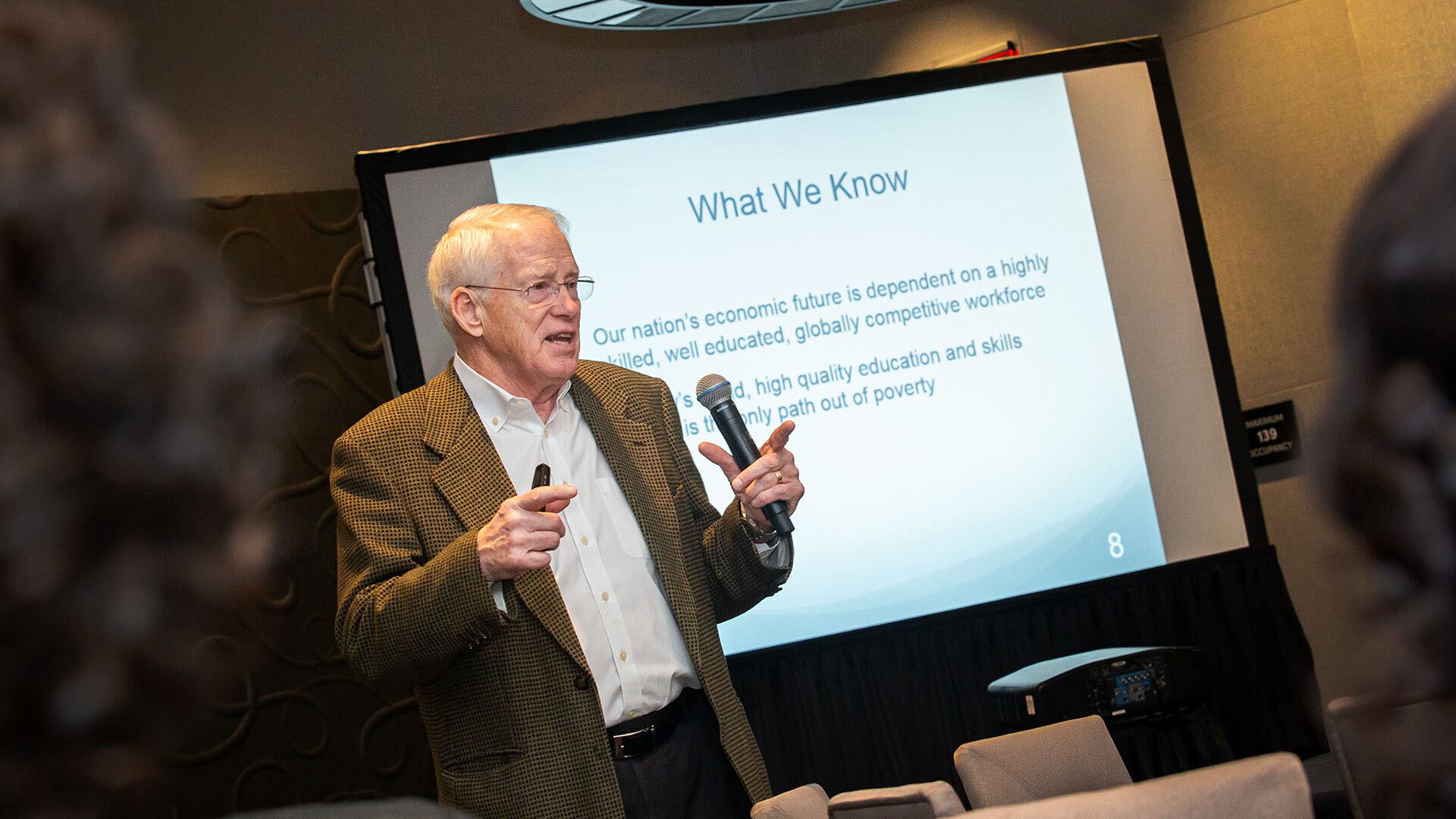- October 18, 2019
- By Sara Gavin
A new Washington Post-University of Maryland Poll released yesterday shows Marylanders are largely in favor of a proposal that would increase spending for public schools by nearly $4 billion over the next decade.
Created by the legislature in 2016 and led by former University of Maryland System Chancellor William “Brit” Kirwan, the commission recommended that county and city governments fund roughly half of the major increase, with the remainder coming from the state.
“Given that few Marylanders had even heard of the Kirwan Commission or details of its proposal, it’s remarkable that we found such broad support for increasing state taxes to improve public education,” said Michael Hanmer, a professor of government and politics who co-directed the poll. “The state has seen vigorous debates over taxes before and might well again on this issue, but the debate might be more about the rate than whether to increase taxes at all.”
The poll found that 69% of Marylanders overall support significantly increasing funding to improve the state’s public school system. Specifically, 55% said they would support a hypothetical tax rate hike of a quarter percent to help improve Maryland schools—an increase that would amount to $200 for a family earning $80,000 a year. However, that support fell to 45% when participants were asked to consider the possibility of an increase at half a percent.
“Even Republicans show some willingness to support a modest tax increase to help pay for educational improvement in the state, which could be a signal to Gov. Larry Hogan that he should tread carefully when it comes to denouncing taxes across the board,” said Stella Rouse, a government and politics professor and director of UMD’s new Center for Democracy and Civic Engagement. “Meanwhile, state Democrats have made overhauling education spending a top priority, so expect a clash between the legislature and the governor in the coming months.”
Consistent with previous Post-UMD polls, Marylanders showed a great deal of interest in public education, ranking it second only to crime as the most important issue facing the state. Other key findings from the poll include:
- 66% of Marylanders support legalizing marijuana for personal use and taxing sales to pay for education programs.
- A majority of state residents support environmental initiatives such as banning Styrofoam containers in restaurants and retail establishments (79%), requiring new buildings to have solar panels (52%) and the construction of a solar panel farm within a mile of their homes (73%).
- 63% of Marylanders support a statewide ban on sales of all flavored e-cigarettes.
The poll was conducted by telephone Oct. 9–14 among a random sample of 860 Maryland residents. Results have an error margin of +/- 4.5 percentage points.
The University of Maryland and The Washington Post have been teaming up to conduct polls on issues of significant interest to Marylanders since 2014. The partnership combines the reporting, polling and public engagement resources of The Post with rigorous academic analysis from the College of Behavioral and Social Sciences’ Department of Government and Politics.
In addition to its impact as a public education tool, the poll also represents a unique research opportunity for UMD students, who help design poll questions and analyze the responses. At The Post, the poll is directed by UMD alumni Scott Clement M.S. ’17 and Emily Guskin ’06.
